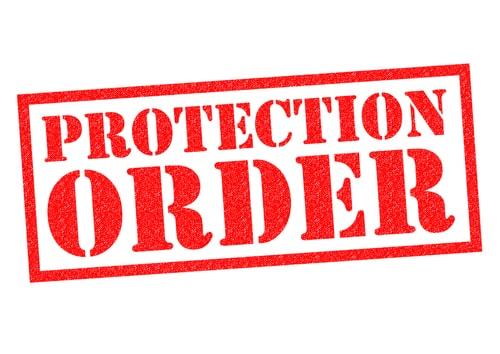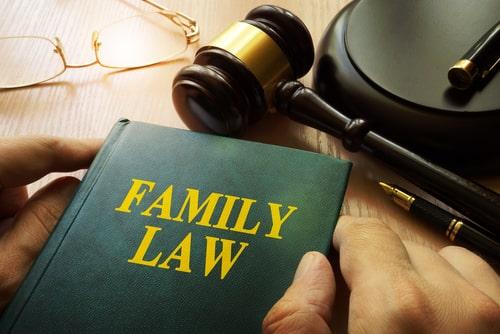Recent Blog Posts
How Mediation Can Make Your Divorce Less Stressful
 Mediation has many advantages for couples looking to resolve issues during divorce proceedings. When couples can work out their differences in an amicable way, it lessens the stress that an otherwise nasty, prolonged divorce would bring. A capable attorney can offer significant advice and guidance before, during, and after your divorce takes place.
Mediation has many advantages for couples looking to resolve issues during divorce proceedings. When couples can work out their differences in an amicable way, it lessens the stress that an otherwise nasty, prolonged divorce would bring. A capable attorney can offer significant advice and guidance before, during, and after your divorce takes place.
What Occurs During Mediation?
Mediation is a meeting for resolving disputes that normally occur in a divorce. The typical issues that may require mediation include:
-
The Allocation of Parental Responsibilities (Child Custody)
-
Child support
Why A Judge May Limit or Restrict Parenting Time
 Parenting time is one issue that a judge will oversee and make a decision on in the case of divorcing parents. There are many factors a judge will take into consideration when making a final decision. In all final decisions, it is a child’s best interest that determines the allocation of parenting time for both parents. Depending on the circumstances, a judge can choose to limit, restrict, or negate parent time for one or both parents. To get a better idea of all the things a court will look at concerning your children in a parenting time dispute, speak with an experienced divorce and family law attorney.
Parenting time is one issue that a judge will oversee and make a decision on in the case of divorcing parents. There are many factors a judge will take into consideration when making a final decision. In all final decisions, it is a child’s best interest that determines the allocation of parenting time for both parents. Depending on the circumstances, a judge can choose to limit, restrict, or negate parent time for one or both parents. To get a better idea of all the things a court will look at concerning your children in a parenting time dispute, speak with an experienced divorce and family law attorney.
The Modification of Parenting Time
The Illinois court can choose to modify an existing parenting time agreement at their discretion but will normally only do so at a parent’s request and only if it is in a child’s best interest. The typical requirement for a parenting time modification following the original parenting plan in a divorce or separation agreement is a significant change in circumstances.
The Effects of Parental Relocation on Children
 Divorce is already a trying time for children of all ages. One complication many divorced parents face that also has long-term effects on children is during relocation. Whichever parent receives significant decision-making responsibilities will oftentimes be the parent a child lives with the majority of the time. That parent may choose to or be forced to find a new place to live. It is also likely that the other parent may have to find a new place to live should the family home wind up with the ex-partner in the asset division hearing.
Divorce is already a trying time for children of all ages. One complication many divorced parents face that also has long-term effects on children is during relocation. Whichever parent receives significant decision-making responsibilities will oftentimes be the parent a child lives with the majority of the time. That parent may choose to or be forced to find a new place to live. It is also likely that the other parent may have to find a new place to live should the family home wind up with the ex-partner in the asset division hearing.
Either way, the child may need to adapt to more change, and this can be overwhelming, especially for young children or children with special needs who may not be able to fully understand what is going on. For a better understanding of what your children may be going through, it may help to seek out a child therapist. And because relocation is often complicated and requires court approval, an experienced divorce attorney can offer legal advice in these kinds of situations.
The Effects Divorce Can Have On Children
 Emotions run high during a divorce for all parties involved. But for your children, especially minor children, they may not be able to understand the situation in order to regulate them. The effects of divorce weigh heavily on children, potentially leading to serious emotional, mental, and even moral complications down the road. As a parent, you will need to do your best to shield your child from the emotional turmoil that divorce can bring while an attorney handles your legal matters.
Emotions run high during a divorce for all parties involved. But for your children, especially minor children, they may not be able to understand the situation in order to regulate them. The effects of divorce weigh heavily on children, potentially leading to serious emotional, mental, and even moral complications down the road. As a parent, you will need to do your best to shield your child from the emotional turmoil that divorce can bring while an attorney handles your legal matters.
Regression
Younger children may show signs of regression, reverting to old behaviors you had worked so hard to get them to overcome. Such behaviors include:
-
Bedwetting
-
Thumb sucking
-
Clinginess
-
Temper tantrums
When this occurs, the stress may be overwhelming your child. Continue to reassure them and remain consistent to get them back on track.
Reasons For a Contested Divorce
 A contested divorce is something you will often see portrayed in movies. A couple cannot get along for whatever reason and they decide, instead of cooperating and ending things amicably, to have a drawn-out, expensive battle inside a courtroom. When divorcing couples have disagreements that cannot be handled outside of court, a contested divorce is likely the only path forward. In any divorce, it is especially important to retain an experienced and skillful attorney to represent you at trial.
A contested divorce is something you will often see portrayed in movies. A couple cannot get along for whatever reason and they decide, instead of cooperating and ending things amicably, to have a drawn-out, expensive battle inside a courtroom. When divorcing couples have disagreements that cannot be handled outside of court, a contested divorce is likely the only path forward. In any divorce, it is especially important to retain an experienced and skillful attorney to represent you at trial.
What is a Contested Divorce?
A contested divorce is when a couple cannot agree on certain factors that surround the divorce. These factors can include:
-
Debt responsibility
-
Division of property
The Benefits of an Illinois Real Estate Attorney
 Typically, buyers will only think of a real estate agent when looking to purchase a new home. However, real estate agents are less qualified to assess legal terms and processes than attorneys accurately. The benefits of having an attorney present when purchasing a home are varied but substantial. From contract negotiations and reviews to dealing with liens and title searches, not having a real estate attorney may be a big mistake.
Typically, buyers will only think of a real estate agent when looking to purchase a new home. However, real estate agents are less qualified to assess legal terms and processes than attorneys accurately. The benefits of having an attorney present when purchasing a home are varied but substantial. From contract negotiations and reviews to dealing with liens and title searches, not having a real estate attorney may be a big mistake.
Contract and Document Reviews
The amount of paperwork that comes with buying and selling new real estate is substantial. Most of what is written in these contracts can come off as legalese or muddled jargon that may be unfamiliar to anyone without a law degree. A real estate lawyer acting on the buyer’s behalf can help sort through the terms and provide a clear and concise contract, removing the complexity for the average layperson. The buyer will fully understand what is in the contract and what they will be endorsing with their signature. In addition to contract reviews, a real estate attorney can help draft the contract and any other necessary documents required for the transaction.
The Truth About Domestic Violence in Illinois
 Violence against anyone can lead to a criminal offense with severe penalties. Domestic violence can include a wide array of potential issues that could damage familial relationships and cause irreparable harm. In some cases, the violence can get so bad that an order of protection may be required to fend off the abuser. An attorney with experience in family violence cases can help you file for a protection order and offer their services in court when the time comes.
Violence against anyone can lead to a criminal offense with severe penalties. Domestic violence can include a wide array of potential issues that could damage familial relationships and cause irreparable harm. In some cases, the violence can get so bad that an order of protection may be required to fend off the abuser. An attorney with experience in family violence cases can help you file for a protection order and offer their services in court when the time comes.
What is Domestic Violence?
Illinois considers domestic violence to be physical abuse, harassment, intimidation, personal liberty interference, or willful deprivation of a family or household member. Family or household members include the following:
- Current or former spouses
- Children
- Your child’s parent
When is a Guardian Ad Litem Necessary?
 The goal of the Guardian ad Litem (GAL) is to act as a legal advocate on behalf of a ward. The purpose is to protect the ward’s best interests during a court case. A GAL may be necessary in cases where a judge requires information on a disabled or incapacitated child or adult to ensure their best interests in the final decision of a court case. A GAL can be a volunteer, a mental health professional, or a lawyer with experience in helping to determine a child’s best interests.
The goal of the Guardian ad Litem (GAL) is to act as a legal advocate on behalf of a ward. The purpose is to protect the ward’s best interests during a court case. A GAL may be necessary in cases where a judge requires information on a disabled or incapacitated child or adult to ensure their best interests in the final decision of a court case. A GAL can be a volunteer, a mental health professional, or a lawyer with experience in helping to determine a child’s best interests.
What is a Guardian Ad Litem Authorized to Do?
Unlike a guardian, a GAL does not have legal authority over a ward. They are only able to make recommendations to the judge on a child’s behalf. A GAL’s job is to help a judge decide what is in a child’s best interest when it comes to their well-being in cases regarding issues like the allocation of parental responsibilities.
Which Accounts Are Considered Marital Property?
 All marital property must be divided equitably in the state of Illinois. The court will try to divide marital assets so that both spouses are given a fair and equitable share. Regardless of whose name is on the account, unless there is a premarital agreement stipulation in place, it will be considered marital property.
All marital property must be divided equitably in the state of Illinois. The court will try to divide marital assets so that both spouses are given a fair and equitable share. Regardless of whose name is on the account, unless there is a premarital agreement stipulation in place, it will be considered marital property.
The following accounts are all considered marital property in Illinois if created after the marriage began:
-
Checking, savings, and credit card, accounts
-
All joint accounts
-
Investment accounts
-
Business accounts
-
Retirement accounts, such as 401(k)s and IRAs
When uncertain of which accounts are considered marital property, a good divorce lawyer can help you understand the finer points of Illinois law. Contact an attorney to go over any accounts you may have and what you can do to safeguard them from division with your soon-to-be ex-spouse.
5 Important Considerations When Making or Reviewing a Will
 A will is a legal document for estate planning that states how you want your property to be distributed after you die. It is important to have a will, even if you think you do not have much property worth distributing. Without a will, the state of Illinois will decide how your property is distributed, according to its laws of intestate succession. This may not be the way you would want your property to be distributed.
A will is a legal document for estate planning that states how you want your property to be distributed after you die. It is important to have a will, even if you think you do not have much property worth distributing. Without a will, the state of Illinois will decide how your property is distributed, according to its laws of intestate succession. This may not be the way you would want your property to be distributed.
Estate planning can be daunting. Thinking about death is not something one would normally choose to do. For assistance with your will, an experienced estate planning attorney is worth consulting. An attorney can help you understand your options and create a will that meets your specific needs.
Who Do You Want to Receive Your Property?
This is the most important consideration in making a will. You can leave your property to your spouse, children, other relatives, or any combination of these. It is important to note that you are not limited to leaving property to your immediate family. You can leave property to anyone you want, including friends, charities, or even pets. However, it is equally important to be realistic about how much property you can afford to leave to others.








